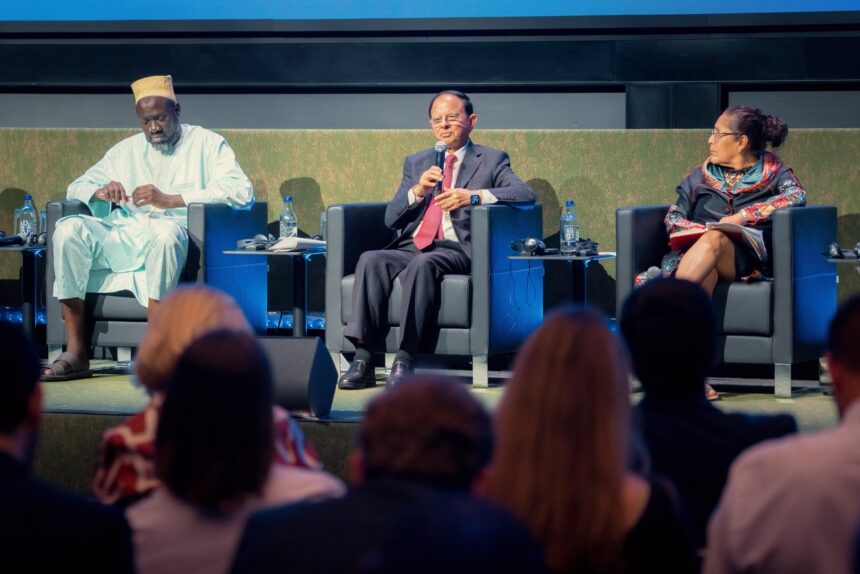NewzVille Desk
Dr. P. K. Mishra, Principal Secretary to the Prime Minister has emphasized the urgent need to address extreme heat as a global crisis, echoing the call from the UN Secretary-General. Delivering the keynote address during the Special Session on Extreme Heat Risk Governance at Geneva on 06 June 2025, he underlined that rising temperatures posing a systemic risk to public health, economic stability, and ecological resilience, and India welcomes the UNDRR’s initiative to advance the Common Framework for Extreme Heat Risk Governance as a platform for shared learning, guidance, and collaboration.
Dr. Mishra emphasized that under the leadership of Prime Minister Shri Narendra Modi, India has taken a proactive and forward-thinking approach to extreme heat risk management.
He pointed out that India has moved beyond disaster response toward integrated preparedness and mitigation strategies. Since 2016, the National Disaster Management Authority (NDMA) has developed comprehensive national guidelines on heatwave management, revised in 2019, which laid the foundation for decentralized Heat Action Plans (HAPs).
He acknowledged the pioneering Ahmedabad Heat Action Plan, which demonstrated how early warnings, inter-agency coordination, and community outreach can save lives.
“Over 250 cities and districts across 23 heat-prone states have operational Heat Action Plans, supported by NDMA’s advisory, technical, and institutional mechanisms”, stressed Mishra, underscoring that strengthened surveillance, hospital readiness, and awareness campaigns have significantly reduced heatwave-related mortality.
Dr. Mishra highlighted that India’s approach is whole-of-government and whole-of-society, engaging ministries from health, agriculture, urban development, labor, power, water, education, and infrastructure. He noted that public health institutes, research groups, civil society organizations, and universities are playing a crucial role in supporting local governments in improving heat action plans.






